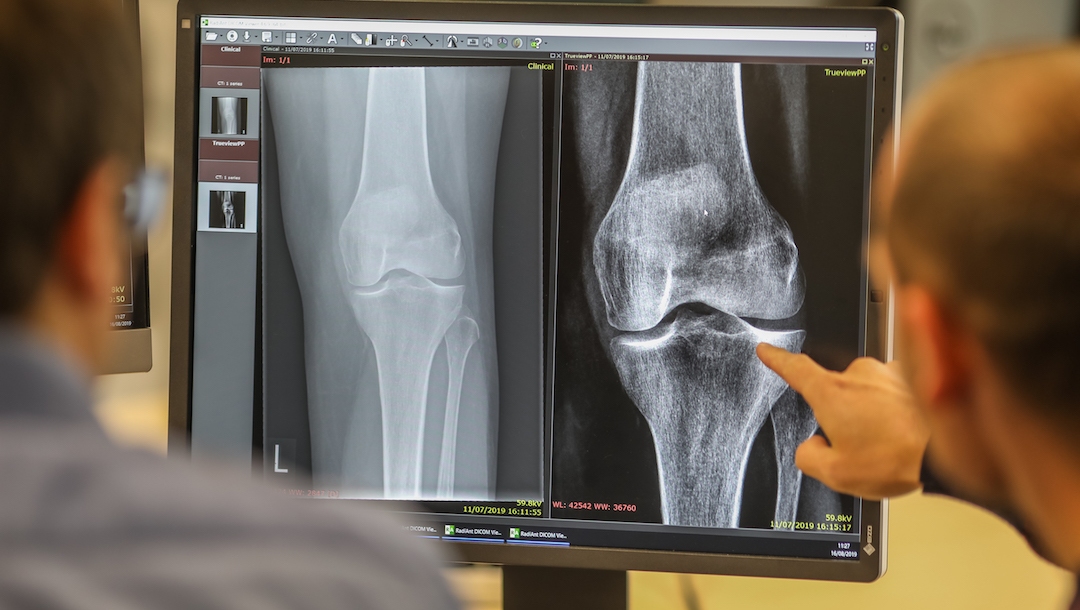IBEX, the Mercia-backed company which is a pioneer in X-ray imaging technology, has developed a new system that can provide an early warning system for osteoporosis, a condition that weakens bones and can result in potentially fatal fractures.
The company has successfully demonstrated the system in a clinical trial with researchers from The James Cook University Hospital in Middlesbrough. It will lead to earlier and widespread screening for osteoporosis and more timely and targeted treatment
There is currently no method for routinely assessing bone health in the general population, and typically osteoporosis is only diagnosed following a serious fracture and assessment on specialist DEXA scanning equipment. Broken hip – one of the most common injuries – costs the NHS currently over £1bn a year and is the largest single cause of accident-related death in the UK.
Uniquely, IBEX Trueview® software will measure a patient’s bone health from a standard X- ray, meaning that the early signs of a problem can be identified from the first fracture, 10- 15 years before the onset of serious osteoporosis.
In preliminary analysis of data from a trial of 130 patients attending for a DEXA scan at James Cook , the IBEX software gave a better prediction of DEXA outcome than age or gender and demonstrated excellent agreement to the current gold standard CT and DEXA methods. This result confirms the huge potential Trueview has to have a major positive impact on bone health assessment. IBEX is now engaged in discussions with a number of major global healthcare companies to incorporate this novel feature in their standard X-ray equipment.
IBEX is backed by investors including the North East Venture Fund (NEVF), which is supported by the European Regional Development Fund and managed by Mercia, the IP Group and private investors. The company has received several rounds of funding totalling £5.5m so far to help it develop its technologies. It is also working on a system to improve detection of breast cancer.
Professor Amar Rangan, Consultant Orthopaedic surgeon, and Chief Investigator for the clinical study commented: “The data I have seen from the study so far is fascinating and exciting, as I think it has the potential to change the way we screen individuals to assess their bone health.”
Dr Stephen Tuck, Consultant Rheumatologist and co-investigator added: “I am now convinced that this technology could make a major contribution to the identification of people with osteoporosis and at risk of fractures.”
Neil Loxley, CEO of IBEX, concluded: “We are excited by the preliminary results of the trial, which we believe demonstrate the first major innovation in the osteoporosis diagnosis since the introduction of DEXA more than three decades ago. I am grateful for the support of clinical and research staff at The James Cook University Hospital and look forward to reporting progress in commercialising this new capability in the near future.”
Ian Wilson, who leads Mercia’s team in the North East, added: “IBEX is a pioneer in its field whose software could help save lives through early detection. Its success also demonstrates how investment from sources such as Mercia and the North East Venture Fund can help create jobs and build local economies by supporting innovative companies in the regions.”
